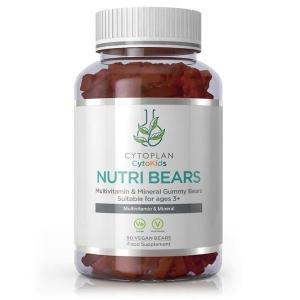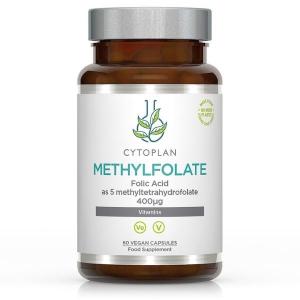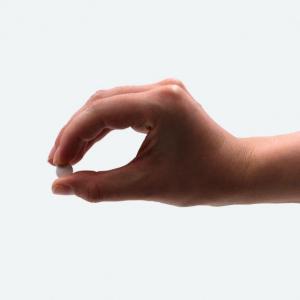
Symptoms of Vitamin D Excess and How to Recognize Them Early

When Too Much of a Good Thing is Harmful - What You Should Know About Vitamin D Excess
Vitamin D has become one of the most discussed nutrients in recent years. While it was once primarily known as the "sunshine vitamin," today it is talked about in relation to immunity, depression, bone health, and even the prevention of some chronic diseases. It's no wonder its popularity has skyrocketed – as has the consumption of supplements that contain it. But as is often the case, even what is healthy can be harmful when overused.
Few people realize that excess vitamin D in the body can have serious consequences. And because it is a fat-soluble vitamin, the body stores it and has difficulty excreting it, increasing the risk of its accumulation to dangerous levels. While a deficiency in vitamin D is a well-known and addressed problem, symptoms of vitamin D excess can be subtle, nonspecific, and often underestimated.
Why Do We Need Vitamin D at All?
Vitamin D is essential for the absorption of calcium and phosphorus, and therefore for healthy bones and teeth. It also supports the function of the immune system, influences mood, and can have an impact on the prevention of some autoimmune diseases. The human body can produce this vitamin on its own – it just needs to expose the skin to sunlight. However, in our latitudes, this is not always possible during the autumn and winter months, leading to reliance on dietary supplements.
When Does a Problem Arise?
Excessive amounts of vitamin D in the body almost exclusively result from supplements – overexposure to the sun is practically not a risk, because the body breaks down excess vitamin produced. The problem arises when people take higher doses than recommended by experts, often with the belief that more is better. The European Food Safety Authority (EFSA) recommends a maximum daily intake of vitamin D for adults of up to 100 micrograms (4,000 IU), while typical supplementation ranges from 20 to 50 micrograms.
Symptoms of Vitamin D Excess - What to Watch For?
When a person overdoes it with vitamin D, it can severely disrupt their body's balance – specifically increasing calcium levels in the blood, a condition known as hypercalcemia. It is this "calcium overload" that triggers most of the unpleasant issues. The body reacts in various ways – you might start feeling nauseous, some might even vomit and lose their appetite, which is quite unpleasant, especially if you're used to eating well.
There is also fatigue, a feeling of weakness, or a vague lethargy, as if your battery is running out, and on top of that, you might experience headaches or muscle pain without apparent cause. Another common signal is increased thirst – a person drinks more but also frequently rushes to the bathroom because the body is trying to excrete the excess calcium in some way. Sometimes, it can even lead to mood swings – you may become irritable, confused, or those around you may notice certain psychological fluctuations.
Try our natural products
In short, the next time you reach for a vitamin D supplement, be sure not to underestimate the dosage – too much of a good thing can sometimes be harmful.
In extreme cases, it can lead to kidney damage, heart rhythm disturbances, or calcification of soft tissues, which are serious conditions requiring medical intervention. More on kidney health.
One example from practice: In 2022, British media reported on a case of a man who took excessive doses of vitamin D for months in an effort to "boost immunity after COVID." The result was stomach ulcers, a loss of 12 kilograms in weight, and hospitalization due to severe hypercalcemia. Such cases are not common, but they highlight how easily good intentions can turn into a health risk.
Who is Most at Risk?
Excessive amounts of vitamin D in the body can be a serious problem, yet many people do not pay attention to it. Those most at risk are those who indiscriminately combine different supplements – for example, they take a multivitamin, add vitamin D drops, and also eat foods fortified with vitamin D daily, such as special milk or yogurts.
This can quickly add up, and you might not even notice. The risk also significantly increases for those who have issues with calcium metabolism or suffer from kidney disease – here, a particularly cautious approach is needed, as the body has a harder time dealing with excess vitamin D. Unfortunately, it's also common for people to start supplementing vitamin D just in case – without even knowing what their baseline level in the blood is.
However, this caution can easily backfire. It's best to always consult with a doctor or at least not take five different things at once without some plan.
It is especially important to be cautious with young children, where incorrect dosing can quickly cause health complications.
How to Determine If You Have Too Much Vitamin D?
Given that symptoms of vitamin D excess can easily be mistaken for other issues – such as exhaustion or digestive problems – it is crucial to have your vitamin D level measured. This blood test is simple and readily available. Ideal values range between 75 and 150 nmol/l. Values above 250 nmol/l indicate a potential problem, and above 375 nmol/l is a toxic range.
It is also important to monitor calcium and creatinine levels, which can indicate whether undesirable changes are occurring in the body.
What Are Safe Doses and How to Proceed?
For prevention, most adults suffice with a daily dose of 20 to 50 micrograms (800–2,000 IU), depending on age, weight, lifestyle, and the time of year. Recommendations for children and seniors are usually more individual. When taking dietary supplements, it is important to:
- Know your baseline vitamin D level
- Avoid combining multiple products without thoroughly reading the composition
- Follow the dosage recommended by an expert
Certainly, vitamin D has undeniable benefits. But as Paracelsus said: "All substances are poisons; it is only the dose that makes a substance a poison."
What Do Expert Authorities Say and What Do Studies Show?
According to the expert opinion of the State Health Institute, there is no evidence that high doses of vitamin D (e.g., 10,000 IU daily) have any additional positive effects in healthy individuals. On the contrary, long-term exposure to such high doses can lead to complications. A review published in The New England Journal of Medicine emphasizes that supplementation should always be targeted and guided by current blood levels – not "just in case."
Health insurance companies in some countries have even stopped covering widespread vitamin D testing due to its overuse and pressure from the pharmaceutical industry.
Alternatives to the "Sunshine Pill"
For those who want to avoid the risk of overdose, there are alternative ways to supplement vitamin D safely and naturally. Primarily, regular outdoor activity, even when it's cloudy – UVB rays penetrate through clouds. Diet can also contribute: it is found in fatty fish (salmon, sardines), eggs, mushrooms, and some fortified foods.
For fans of natural methods, there are also plant-based supplements with lower vitamin D2 or D3 content from lichens – a safer option for those who want to avoid high doses without control.
Vitamin D is truly a gift of nature, but it is also a nutrient that needs to be handled with respect. A healthy lifestyle is not about extremes, but about balance. And balance – between the sun, diet, and supplements – is the key to ensuring this vitamin truly benefits us and does not harm.







